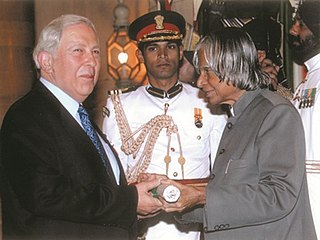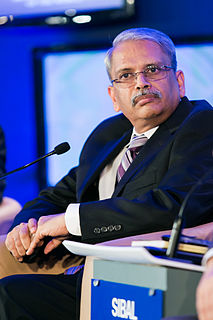A Quote by Rakesh Jhunjhunwala
There has to be a period of consolidation in the IT industry. Similarly in pharma, I think India is going to be a world power. We have the lowest cost, good technology, Indian companies are gaining size.
Related Quotes
What makes the Amazon-Whole Foods deal so problematic is that they are going into an industry with large infrastructure, brick-and-mortar cost, and seeking to build consolidation where we already suffer from consolidation. It's not like Walmarts and Targets have been good for wages or local grocery stores or niche producers.
I am extremely honoured by Indian Council For Culture Relations, India's apex body on the promotion of great Indian culture across the world for including cinema and I am deeply honoured for being the first person from the Indian film industry to represent the cause of this industry in the overall cultural promotion globally.
I think the Tata Group's greatest contribution to the growth of the Indian economy and Indian industry probably happened in the pre-independence era. The Group's investments in industries such as steel, textiles, power and hotels were certainly driven by an entrepreneurial spirit, but they were driven even more, I think, by a desire to make India self-sufficient and independent of its colonial masters then.
One of the weaknesses of Indian industry is that in many areas.. like consumer goods.. it is very fragmented. Individually, the companies might not be able to survive. What is needed is a consortium of like companies in one industry, presenting a strong front to the multinationals. The Swiss watch industry did this.
If you look across the economy, if you have multiple players in an industry, you have more customization, more innovation, greater choice for consumers. The more you have consolidation, the less likely you are to invest in innovation. It becomes all about driving down cost and mass production. And that's not good for innovation in an industry.

































